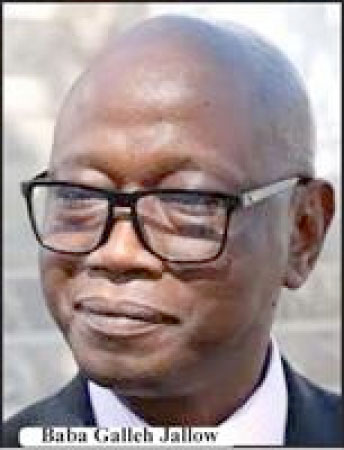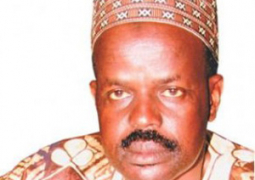
With
the exception of Ethiopia, and to a lesser extent Liberia, all African
countries are creations of colonialism. And they are creations for which little
planning was done, except in the imperial and boardrooms and champers of
Europe. Both during and after the Berlin Conference of 1884 – 1885, European
imperialism haphazardly partitioned the African land mass into a series of what
were clearly seen as extractive conclaves for the sake of Empire. Parcels of
territory were grabbed and mutually assured boundaries that had no historical
precedents imposed, cutting apart indigenous political, social and ethnic
formations regardless of the consequences for the affected communities. These
African colonies, as they were called, were extensions of colonial metropoles to
which the “rule of colonial difference” was applied: Rights and privileges
enjoyed by citizens of the colonizing countries were denied the people of the
colonies, who were regarded as subjects of Empire. Unlikely political
creatures, African colonies nevertheless struggled for and attained
independence in the decades following the end of the Second World War.
But
African independence did not bring the benefits that nationalist leaders
promised their followers – the mass of ordinary Africans who voted for independence,
or in some cases, shed blood for independence. Over sixty years since Ghana’s
independence in 1957, the great majority of African countries remain mired in
poverty and underdevelopment and actual or latent conflict. Poverty has been
growing worse on the continent since independence even as goods get more
expensive and services in many areas of national life poorer. The introduction
of life presidencies and the one-party state from the 1960s triggered a
hydra-headed epidemic of inept and kleptocratic civilian governments, military
coups and tin pot dictatorships that have kept reproducing themselves to this
day. Where “democratic” civilian rule existed, it was democratic rule of the
sort in which the incumbent always wins elections and in which the voters vote
on anything but policy. In these “democracies” and other less “democratic”
countries, governments have repeatedly failed to actualize the promises of
independence.
The
unlikely but thought-provoking suggestion is often made that some African
countries were better off at independence than they are now. At independence,
African countries certainly did not carry the mountains of debt they have today
and there were not so many conflicts and so much abject poverty on the
continent. Times have certainly changed since independence, but African
governments have not been able to adapt to the challenges that come with
changing times largely because the pool of national creativity from which they
could draw remains severely limited by a politics of exclusion and an obsession
with perpetually enjoying more than a piece of the mythical “national cake”
that everyone knows about but only a few ever see.
African
countries’ incapacity to overcome the challenges of independent
nation-statehood could be attributed to any number of reasons, including
formidable extraneous factors beyond African control. But one reason that is
crucially important but often overlooked is the repeated failure by African
governments to fulfil their promises of freedom, equality and empowerment to
their citizens. On the campaign trail for independence, African nationalist
leaders made beautiful promises of a free and empowered citizenry that would
take its destiny in its own hands and develop its country to the highest
possible standards of peace and prosperity. The imagined vista of independence
was a large, vibrant space of liberated, happy and industrious peoples making
great strides towards the fulfilment of their day to day needs without fear or
favor, affection or ill will. Immediately after independence however, the idea
of an empowered citizenry and all related promises lost their appeal to the new
governments and their successors. Increasingly, the creative politics of
liberty and popular empowerment that nationalist leaders promised to practice
after independence was relegated to the background as the new leaders rapidly
developed a sweet tooth for power, a penchant for self-glorifying spectacles,
and unrestrained access to the so-called “national cake.”
In
essence, the new postcolonial governments started doing exactly the opposite of
everything they had promised to do after independence. Where they had bitterly
ranted against the colonial exceptionalism that Africans were incapable of
practicing democracy and properly ruling themselves, the new African
governments now adopted the neo-exceptional position that democracy was not
suitable for Africa. They got heads nodding to that or simply indifferent to it
in the West, and so even made philosophies of it with which they ceaselessly
harangued their local audiences, often to the sounds of rapturous applause,
drumming and dancing. The rights and freedoms for which Africans voted or
fought for were now branded damaging vestiges of imperialism and neocolonialism
and ruthlessly trampled upon by the new governments. The fact that the great
majority of Africans saw nothing wrong with these neo-exceptional tactics at
self-perpetuation and despotism only encouraged a strange “new Africanitè” that
now agreed with all that the former colonial powers said Africa was, including
the practice of holding cow tails and wearing leopard skins on public occasions
to demonstrate just how African they were.
The
most popular bogey of African political neo-exceptionalism was “the security of
the state” in whose name the freedoms of the people were progressively
expropriated and curtailed, often using colonial era laws and tactics. Life
presidencies were declared, one party states imposed, military coups committed,
and civil wars ignited as a hostile politics of exclusion and repression
mushroomed around the continent. The sociopolitical and economic environment in
each country rapidly grew moribund as the creativity, innovation, and mental
energies of the people were squeezed out of action by the new governments.
Where a million heads were needed to do the work of independent nationhood,
only a few dozen heads were allowed to participate, and those only that agreed
with whatever the leaders said and wanted done. The promise of true freedom
suffered a stillbirth in independent Africa, and with it, all true potential
for meaningful human progress. And so today, sixty years later, the potentially
richest continent in the world kneels prostrate, tired and dusty at the bottom
of the world’s poverty index, still the object of Western and more recently,
Eastern pity.
But
however bleak postcolonial Africa’s developmental trajectory has been, one
dares to hope that the continent’s socio-economic and political trajectories
may effectively be reversed by a practice of creative politics – the politics
that was promised at independence but never delivered: a politics capable of
identifying and defining the challenges cropping up in a country and
implementing the practical solutions required to overcome them; a politics that
recognizes that development simply means the capacity to rise up to, adapt, and
overcome the challenges that emerge in our national environments. It is not
some strange and incomprehensible mystery to be solved in policy papers and
conference halls. It is simply a society’s capacity to address and solve most
of the basic problems that confront it on a daily basis – such as street
potholes, water shortages, poor health facilities, perennial power outages,
rising youth unemployment and inadequate roads. Development manifests as
practical improvements in the lives of the people brought about by the people’s
own creative energies enhanced by the state.
The
key challenge that African governments have consistently failed to meet is to
enable the whole society, or large segments of it, to think and act in
innovative ways that would transform both their individual lives and society at
large. This can only happen when citizens are practically empowered, and their
power to freely think, act and innovate is deliberately nurtured and supported.
But as some writers on the subject of creative politics and leadership put it,
“the truth is that unleashing the power of the masses to act on their own ideas
is deeply troubling” to governments, especially African governments. It should
not be. A government should be willing to enhance the capacity of the people -
all of the people - to manifest their creative energies in all possible ways,
including in ways that would ensure state accountability to nation and in ways
that enhance peace, order, and sustained social growth and productivity. This
simply means that there must be a deliberate policy and practice of literally
investing in Africa’s most important and ironically most neglected resources –
its people, especially its young people who may be put to gainful employment
with some thoughtful reordering of funding priorities in national budgets.
The
practice of creative politics means where thousands of young people were
without employment yesterday, they would be gainfully employed today; that
where we had massive potholes and mini lakes on our streets yesterday, there
would be paved streets today; that where there was a lack yesterday, there
would be availability today; and that, among many other things, where our
service delivery was poor yesterday, it would be excellent today. It also means
all hands and minds on deck, regardless of partisan political or other divisive
reasons for exclusion from the national effort. In the practice of creative
politics, genius is recognized, supported and rewarded with the capacity to
constructively contribute to national welfare. Every citizen having good ideas
on how to improve the living conditions of the people is encouraged and enabled
to do so.
There
is no doubt that creative politics may have to temper need with reality; but it
may never be complacent in the face of a growing pile of unresolved challenges
that keep getting more and more complicated, more and more energy-sapping, and
more and more stifling of human dignity from day to day, year to year; much
like our streets in the rainy season and the traffic nightmare we witness on
our roads, among other normalized abnormalities we suffer on a daily basis.
Creative politics must be able to deliver a society to the next level; always to
the next level of a capacity to rise, adapt to, and overcome challenges in all
spheres of its national environment. Creative politics must be able to generate
noticeable and practical positive transformations in the lives of the people in
a society. It must be able to generate and enact transformative processes that
see societies successfully rising to and adapting to the challenges in their
environment, overcoming them, and improving their lives and living conditions
in the process.
In
the final analysis, it is possible to reverse the debilitating trends of
national incapacity by practicing a creative politics of enlightened liberty
and constructive popular empowerment – the unfulfilled promise of African
independence.



